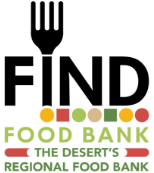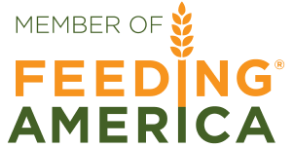FIND Food Bank’s food distributions are
40-50% Fresh Produce
Maintaining a healthy lifestyle starts with a colorful plate and some exercise! FIND’s nutrition policy focuses on five key food groups in acquiring and distributing food to our network. Our equitable distribution of fresh fruits, vegetables, protein, dairy, and whole grains align with the USDA MyPlate recommendations for a nutritious, well-rounded diet.
Fighting Diabetes in Adults Facing Hunger
Watch more Ancestral Recipe videos on FIND’s YouTube Channel
The Patient-Centered Outcomes Research Institute (PCORI) grant funded a partnership between the patient communities in the eastern Coachella Valley, the University of California Riverside, FIND Food Bank, and the University of California Los Angeles. Utilizing the food items FIND distributes to the community and USDA’s MyPlate, the recipes are tailored to ensure ingredients are available and affordable to the patient community in the eastern Coachella Valley. Community members contributed their own family recipes and chose the theme “Ancestral Recipes: From My Grandma’s Kitchen to Yours.”
Ancestral Recipes CookbookS
Spotlight on Child Health and Nutrition
Childhood food insecurity caused by inadequate access to healthy food has increased the prevalence of chronic health conditions among Black, Latino, Native American individuals, and a subset of Asian American and Pacific Islander (AAPI) children.
Children who don’t have enough to eat are more likely to face poverty as an adult, developmental issues, mental health problems, and chronic diseases such as diabetes, obesity, and heart conditions.
Hunger Hurts Our Health
For example, for food-insecure adults living with diabetes, the choice between food and controlling the disease can even lead to complications like kidney disease, eye disease, and nerve damage.
- Food insecurity can lead to Type 2 diabetes, high blood pressure, heart disease, and obesity.
- 58% of households served by the national Feeding America network have a member with high blood pressure and more than one-third have a member with diabetes.
- Children at risk of hunger are more likely to be in poor health and struggle in school.




